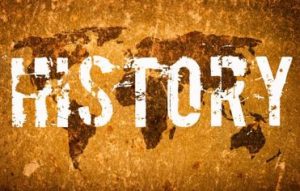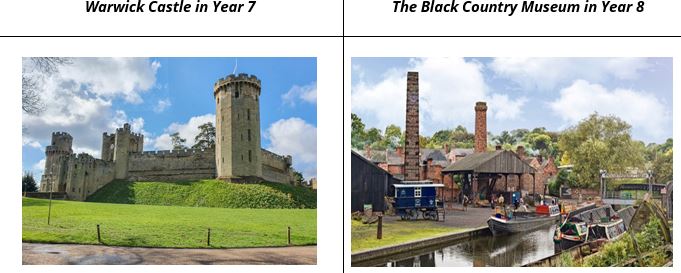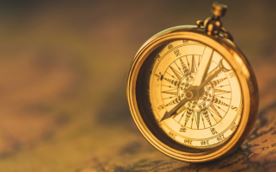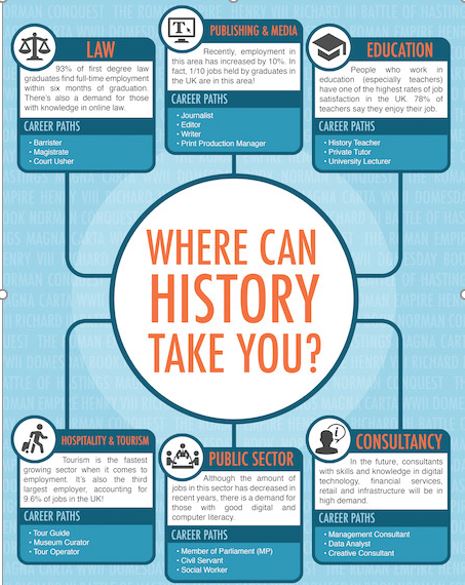History at Paulet

What do students learn in history in Key Stage 3?
History provides young people with the chance to learn about the significant events and individuals who have shaped our past, created the world of today and continue to influence the world of tomorrow. Studying history enables students to reach their own informed opinions that will in turn enable them to more fully play a role in positively shaping the history of the future.
Throughout the course we focus on the impact of key groups of people who settled in England. We start this by considering the impact of the Romans, Saxons, Vikings and Normans before later finding out about the story of West Indian and Asian immigrants. We also look at the impact that religion has had on English society in the Middle Ages and the subsequent Break with Rome under Henry VIII.
We consider the power of the monarchy through the Middle Ages and Renaissance before investigating the reduction in royal power as a result of the English Civil War.
We investigate the changing roles for both men and women within society from the medieval feudal system to the Industrial Revolution, the campaign for universal suffrage and beyond.
We look at a range of historical examples for both democracies and dictatorships. In conjunction with this we investigate the impact that conflict has had in shaping British society from the Norman Conquest to the World Wars and other more recent conflicts, considering the lessons which need to be learnt from these to make the world a better place.
Throughout the Key Stage 3 course we develop the historical skills required for study at GCSE level.
How do students learn in KS3?
Students are increasingly encouraged to learn through paired and whole class discussion to draw on the knowledge and understanding of their peers. The use of historical case studies will engage students in decision making exercises where they must reach make justified decisions using a range of sources. The skills developed in Year 7 are further developed in Year 8 and Year 9 is focused on preparing students for GCSE history. This includes an investigative study on the impact of ‘Factors for Change’ in history which reflects on what they have learnt across the whole of key stage 3 history, whilst simultaneously refining the skills needed for key stage 4. All assessments in key stage 3 are designed to reflect the style of questioning used in GCSE history so that students will be thoroughly prepared for such future assessment.
What topics are covered and when in each year group? What is the sequence of teaching?
Our topics of learning are listed below. The sequence of learning is designed to develop students understanding across key periods of time.
| Year 7
|
Year 8 | Year 9 | |
| Autumn 1 | The Norman Conquest
|
Post Tudor British Monarchs | Life in World War 1 |
| Autumn 2 | Medieval Monarchs
|
The British Empire and its legacy
|
What causes conflict in the twentieth century? |
| Spring 1 | Life and Religion in Medieval England
|
Slavery and its legacy | What causes conflict in the twentieth century? |
| Spring 2 | The Tudors and Challenges to the Catholic Church
|
The Industrial Revolution and its legacy | Life in Nazi Germany |
| Summer 1 | Challenges to the Crown and The English Civil War
|
The Industrial Revolution and its legacy | What is the best way to bring about change? |
| Summer 2 | Early Migration to Britain
|
The First World War | What is the best way to bring about change? |
How are students assessed in KS3 history?
Students are assessed twice each half term through a combination of mid topic and end of topic tests. Assessments are largely written but presentation tasks are also included at times.
Home learning
The homework tasks which are set are integral to the learning taking place in the classroom and as such is now referred to as home learning. Students are set one piece of home learning a fortnight in line with our two-week timetable. Students will usually be given a week to complete their work. Tasks will be set via the Go4 Schools app, but are also explained in class and usually a paper copy of the task is given out along with whatever other resources are needed for students to complete the task.
Extra-curricular opportunities include visiting

Cultural capital
The value of independent home learning is emphasised to instil in the students a sense of ownership and responsibility for their learning. Naturally, appreciation of the world’s diverse history and differing cultural experiences are developed throughout the learning journey that is presented in the study of history.

Careers
Students develop a wide range of skills during key stage 3 history which transfer to a wide range of career paths. History grounds young people in the skills of research, analysis and evaluation. The study of history enables you to formulate, test, debate, defend and refine hypotheses.
History is a well-respected and longstanding subject and those who go on to study it at higher levels will find that it provides many different and varied options for exciting careers in the future.
Careers for historians

